
Internal Medicine
Tackling Jaundice
Dr. Damanjit Singh Chadha Jul 11, 2014
 Jaundice is not a disease per se, rather a visible sign of an underlying disease process. It can be caused by a variety of medical conditions, some of which are serious and potentially life-threatening
Jaundice is a yellowish discolouration of the skin, mucous membranes and of the white of the eyes caused by elevated levels of bilirubin in blood (Hyperbilirubinemia).
Causes of jaundice
Dysfunction of the normal metabolism or excretion of bilirubin causes jaundice. This can be at various stages as pre-hepatic (the problem arises before secretion to the liver), hepatic (the problem arises within the liver) and post-hepatic (the problem arises after bilirubin is excreted from the liver).
Pre-hepatic causes like malaria, thalassemia, G6PD deficiency, etc.
hepatic causes
• Acute or chronic hepatitis (commonly viral [hepatitis A, B, C, D, E] or alcohol)
• Cirrhosis (caused by various conditions including alcohol)
• Drugs or other toxins
• Crigler-Najjar syndrome
• Autoimmune disorders
• Gilbert’s syndrome
• Liver cancer
Post-hepatic causes
• Gallstones
• Cancer (pancreatic cancer, gallbladder cancer and bile duct cancer)
• Strictures of the bile ducts
• Cholangitis
• Pancreatitis
• Parasites (for example, liver flukes)
Viral hepatitis
There are major five types of viral hepatitis:
Hepatitis A: It is caused by hepatitis A virus and is very common in India. Hepatitis A is most commonly transmitted by consuming food or water contaminated by faeces of an infected person.
Hepatitis B: It is caused by hepatitis B virus. It is transmitted through puncture wounds or contact with infectious bodily fluids (such as blood, saliva or semen). Injection drug uses, sex with an infected partner or sharing razors with an infected person are activities that increase risk.
Hepatitis C: It is caused by hepatitis C virus, hepatitis C is transmitted through direct contact with infected bodily fluids (typically through injection drug use and sexual contact).
Hepatitis D: This is a rare form of hepatitis that occurs in conjunction with hepatitis B.
Hepatitis E: Food and waterborne disease caused by hepatitis E virus and very common in India. Mainly found in areas with poor sanitation and is typically caused by ingestion of contaminated faecal matter.
Hepatitis A and E are normally contracted from eating contaminated food or drinking contaminated water. Hepatitis B, C and D are contracted through contaminated blood.
Symptoms of jaundice due to viral hepatitis
Signs and symptoms of acute hepatitis appear quickly. They include:
• Fatigue
• Flu-like symptoms
• Dark-coloured urine
• Clay-coloured stool
• Abdominal pain
• Loss of appetite
• Unexplained weight loss
• Yellow skin and eyes (may be signs of jaundice)
Since chronic hepatitis develops slowly, these signs and symptoms may be too subtle to notice.
How is jaundice in adults diagnosed?
• Liver is enlarged and tender
• Eyes or skin are yellow
• Liver function tests and viral antibody testing
• Urine testing
• Ultrasound abdomen
• In some cases-liver biopsy
Treatment for viral hepatitis
Hepatitis A: Hepatitis A isn’t usually treated. Bed rest may be recommended if symptoms cause a great deal of discomfort. If you experience vomiting or diarrhoea, you will be put on a special diet advised by your doctor to prevent malnutrition or dehydration. Avoid alcohol. Some cases may need hospitalisation.
Hepatitis B: Acute hepatitis B doesn’t require specific treatment. Chronic hepatitis B is treated with anti-viral medication. This form of treatment can be costly, since the treatment must be followed for several months or years.
Hepatitis C: Anti-viral medications are used to treat both acute and chronic forms of hepatitis C. People who develop cirrhosis (scarring of the liver) or liver disease as a result of chronic hepatitis C may be candidates for liver transplantation.
Hepatitis E: Since the infection is often acute, it typically resolves on its own. People with this type of infection are often advised to get adequate rest, drink plenty of fluids and nutrients, and avoid alcohol. Some patients may need hospitalisation.
Tips to prevent viral hepatitis
• Get the vaccines for hepatitis A and B (there is currently no
vaccine available for hepatitis C and E).
• Use a latex condom during sex.
• Don’t share needles, inhalant devices or take drugs.
• Improved sanitation and practicing good personal hygiene such as thorough hand washing, drinking safe water and avoiding eating unsafe foods. Fruits and vegetables should not be eaten unless they are cooked or can be peeled.
• Don’t use an infected person’s personal items such as razor or toothbrush.
• Take precautions when getting a tattoo, body piercing or manicure/pedicure. Make sure the instruments are cleaned or disposable; or take your own manicure kit.
Jaundice is not a disease per se, rather a visible sign of an underlying disease process. It can be caused by a variety of medical conditions, some of which are serious and potentially life-threatening
Jaundice is a yellowish discolouration of the skin, mucous membranes and of the white of the eyes caused by elevated levels of bilirubin in blood (Hyperbilirubinemia).
Causes of jaundice
Dysfunction of the normal metabolism or excretion of bilirubin causes jaundice. This can be at various stages as pre-hepatic (the problem arises before secretion to the liver), hepatic (the problem arises within the liver) and post-hepatic (the problem arises after bilirubin is excreted from the liver).
Pre-hepatic causes like malaria, thalassemia, G6PD deficiency, etc.
hepatic causes
• Acute or chronic hepatitis (commonly viral [hepatitis A, B, C, D, E] or alcohol)
• Cirrhosis (caused by various conditions including alcohol)
• Drugs or other toxins
• Crigler-Najjar syndrome
• Autoimmune disorders
• Gilbert’s syndrome
• Liver cancer
Post-hepatic causes
• Gallstones
• Cancer (pancreatic cancer, gallbladder cancer and bile duct cancer)
• Strictures of the bile ducts
• Cholangitis
• Pancreatitis
• Parasites (for example, liver flukes)
Viral hepatitis
There are major five types of viral hepatitis:
Hepatitis A: It is caused by hepatitis A virus and is very common in India. Hepatitis A is most commonly transmitted by consuming food or water contaminated by faeces of an infected person.
Hepatitis B: It is caused by hepatitis B virus. It is transmitted through puncture wounds or contact with infectious bodily fluids (such as blood, saliva or semen). Injection drug uses, sex with an infected partner or sharing razors with an infected person are activities that increase risk.
Hepatitis C: It is caused by hepatitis C virus, hepatitis C is transmitted through direct contact with infected bodily fluids (typically through injection drug use and sexual contact).
Hepatitis D: This is a rare form of hepatitis that occurs in conjunction with hepatitis B.
Hepatitis E: Food and waterborne disease caused by hepatitis E virus and very common in India. Mainly found in areas with poor sanitation and is typically caused by ingestion of contaminated faecal matter.
Hepatitis A and E are normally contracted from eating contaminated food or drinking contaminated water. Hepatitis B, C and D are contracted through contaminated blood.
Symptoms of jaundice due to viral hepatitis
Signs and symptoms of acute hepatitis appear quickly. They include:
• Fatigue
• Flu-like symptoms
• Dark-coloured urine
• Clay-coloured stool
• Abdominal pain
• Loss of appetite
• Unexplained weight loss
• Yellow skin and eyes (may be signs of jaundice)
Since chronic hepatitis develops slowly, these signs and symptoms may be too subtle to notice.
How is jaundice in adults diagnosed?
• Liver is enlarged and tender
• Eyes or skin are yellow
• Liver function tests and viral antibody testing
• Urine testing
• Ultrasound abdomen
• In some cases-liver biopsy
Treatment for viral hepatitis
Hepatitis A: Hepatitis A isn’t usually treated. Bed rest may be recommended if symptoms cause a great deal of discomfort. If you experience vomiting or diarrhoea, you will be put on a special diet advised by your doctor to prevent malnutrition or dehydration. Avoid alcohol. Some cases may need hospitalisation.
Hepatitis B: Acute hepatitis B doesn’t require specific treatment. Chronic hepatitis B is treated with anti-viral medication. This form of treatment can be costly, since the treatment must be followed for several months or years.
Hepatitis C: Anti-viral medications are used to treat both acute and chronic forms of hepatitis C. People who develop cirrhosis (scarring of the liver) or liver disease as a result of chronic hepatitis C may be candidates for liver transplantation.
Hepatitis E: Since the infection is often acute, it typically resolves on its own. People with this type of infection are often advised to get adequate rest, drink plenty of fluids and nutrients, and avoid alcohol. Some patients may need hospitalisation.
Tips to prevent viral hepatitis
• Get the vaccines for hepatitis A and B (there is currently no
vaccine available for hepatitis C and E).
• Use a latex condom during sex.
• Don’t share needles, inhalant devices or take drugs.
• Improved sanitation and practicing good personal hygiene such as thorough hand washing, drinking safe water and avoiding eating unsafe foods. Fruits and vegetables should not be eaten unless they are cooked or can be peeled.
• Don’t use an infected person’s personal items such as razor or toothbrush.
• Take precautions when getting a tattoo, body piercing or manicure/pedicure. Make sure the instruments are cleaned or disposable; or take your own manicure kit. Categories
Clear allMeet the doctor

Dr. Damanjit Singh Chadha
CONSULTANT INTERNAL MEDICINE | Fortis Vasant Kunj
- Internal Medicine | Internal Medicine | General Physician
-
25 Years
-
1500







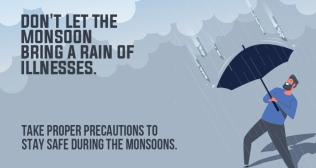
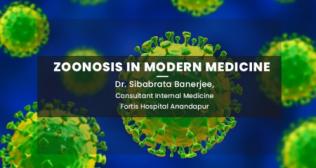
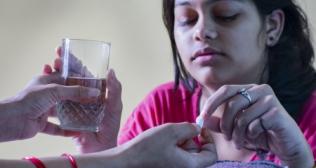
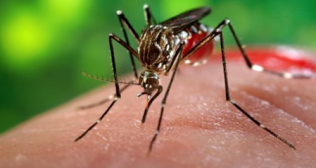
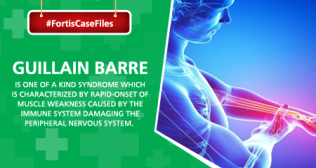

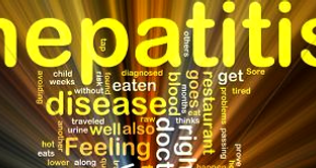

}}drupal-data/images/blog-lists.png)


